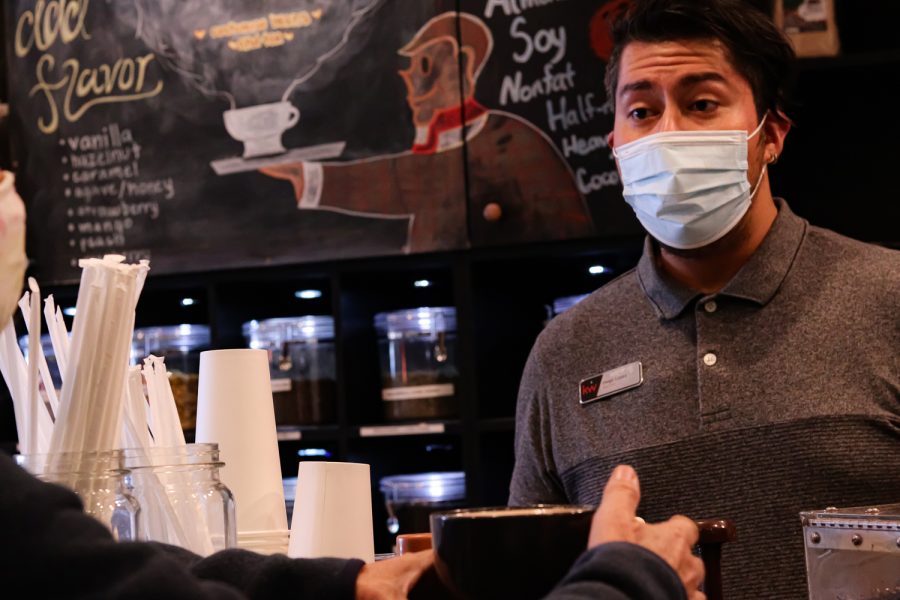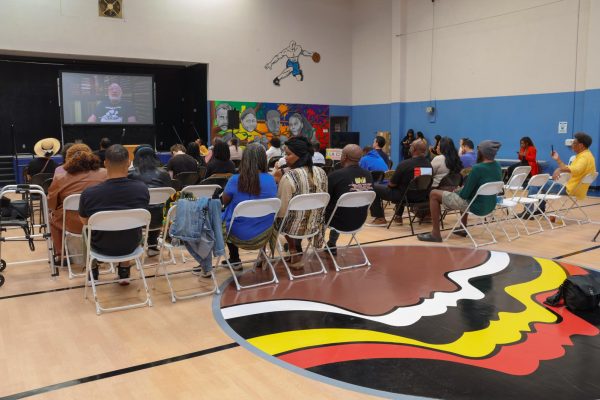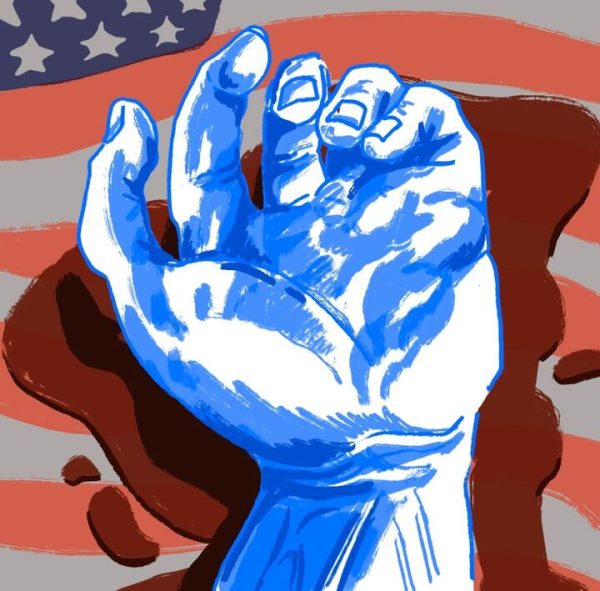Opinion: Workers don’t want to go back to their jobs. They are being underpaid and mistreated.
November 23, 2021
There are 10.4 million job openings, according to the U.S. Bureau of Labor Statistics. Despite the plentiful jobs, the report showed that only 6.3 million people were being hired between September and November. More than 4 million people also left their jobs in the same period.
Yet, people are not taking these jobs even though they’re continuing to struggle from the impact COVID-19 has had on their lives. A Pew Research Center survey shows that “1-in-4 adults have had trouble paying their bills since the coronavirus outbreak started, a third have dipped into savings or retirement accounts to make ends meet, and about 1-in-6 have borrowed money from friends or family or gotten food from a food bank.”
The million-dollar question would be: If people are struggling to make ends meet, how come they’re not applying to the jobs that are open?
The current labor shortage is not because people don’t want to work. It’s because people are tired of being underpaid, mistreated, and having to deal with rude and condescending people who think the phrase “the customer is always right” allows them to get whatever they want as long as they yell loud enough.
A Peter G. Peterson Foundation article from earlier this year on how the stimulus checks have affected the economy shows that there has been a boost in economic output, with 1.1% from unemployment and 0.6% from the stimulus payments.
The COVID-19 relief funds and unemployment benefits have led people to get more income in a month compared to what they were earning at their jobs.
If you were to compare working one hour to earn $15 or less, or getting $1,000 or more without having to interact with other people, the latter would always win.
People do not want to go to a job for hours on end, where they continually have to face mistreatment from customers and are overworked by employers simply to make enough to pay bills. Why would anyone want to spend their time somewhere where they are unhappy?
I’m lucky enough to work at a place where I’m respected by my bosses and get rewarded for simply doing my job. It’s work environments like these that make people want to show up to work and actually put in effort in doing their jobs.
Unfortunately, not everyone has that same work environment.
Restaurant workers seem to be affected most by a bad working environment. A study showed that “62% reported receiving emotional abuse and disrespect from customers, and 49% reported abuse from managers.” Also, more than 70% of restaurant workers that are women have been sexually harassed at least once and 44% stated that the harassment came from someone in a position of power.
Restlessness from employees can also be seen by the ongoing strikes that are happening across the U.S. Just last month, news publications named October “Striketober” because of how many workers were going on strike. According to Time magazine, there were 10 strikes alone in the first five days of October and 169 total recorded strikes in 2021.
Labor unions, which advocate for improving working conditions, pay and benefits for employees, have helped them negotiate for better contracts. According to a Economic Policy Institute report, unionized workers “earn on average 11.2% more in wages than nonunionized peers,” and “Black and Hispanic workers get a larger boost from unionization. Black workers represented by a union are paid 13.7% more than their nonunionized peers. Hispanic workers represented by unions are paid 20.1% more than their nonunionized peers.”
It’s being seen that workers will not go back to work without negotiating for better pay and working conditions. The strikes and union deals that are happening now, such as the tentative deal made between Kaiser Permanente and the Alliance of Healthcare Unions that will increase wages annually and address concerns about burnout from shortage of staff, are examples of how employees have to resort to other measures when employers are not listening or meeting their needs.
The International Alliance of Theatrical Stage Employees union also reached a tentative agreement on a three-year contract with the Alliance of Motion Picture and Television Producers that would benefit more than 40,000 employees of 13 West Coast IATSE local unions on Oct. 16. The agreement includes an “annual 3% wage increase, increased meal period penalties, daily rest periods of 10 hours without exclusions, weekend rest periods of 54 hours, Martin Luther King Jr. [Day] added to schedule and adoption of diversity, equity and inclusion initiatives.”
What would’ve been the largest strikes in the healthcare and entertainment industry history were stopped because workers’ concerns were finally being addressed in these agreements. Workers aren’t going on strikes because they don’t want to work. If anything, they’re putting in all this effort because they want to work. They’re sacrificing their time and even their jobs just so they can be heard.
People want to work, but not at the expense of being disrespected by the people who are relying on their help. Rest breaks and fair pay shouldn’t have to be fought for, they should already be given. If these aren’t offered then workers will quit.
It’s also why workers aren’t filling these open positions. Instead of being the ones who have to impress to get the job, companies are now having to provide incentives, such as sign-on bonuses, to attract workers. With so many open jobs, people can be more selective about what jobs to apply for and quit when they’re not happy with what they’re being offered.

It should also be considered that going to work and having to interact with more than 50 people a day, especially as a retail worker, is putting the employee’s health at risk. Not only are working conditions something to worry about, one has to think about whether or not their priorities are toward working or to their health.
There’s not a day where I don’t encounter someone who comes into the store without a mask. People get aggressively angry for being asked to put on their masks, and go on to spew their beliefs at me, even though there’s literally a sign saying you need to wear one before you enter the store.
While employers seem to be the fundamental cause for workers quitting, they’re not the only ones to blame. Specifically in service industry jobs, not only do people have bosses breathing down their back, it’s the people they’re providing a service for that make the job more challenging.
It’s only when customers scream and get in my face do I want to go home and never come back.
I remember one time when two customers came up and wanted to do a return. This was the first time I had interacted with them, so I didn’t know what the situation was, but someone else was holding their items so I had to wait for that person to locate the item.
These two women started getting angry, complaining about why it was taking so long, and that I was keeping them from going home to their kids. Mind you, this was when non-essential stores had just recently opened back up, and we’re a store that sells mainly clothes.
It had been less than five minutes and they resorted to calling me degrading names, saying there’s something mentally wrong with me, and being overly rude when I didn’t know what was going on. I hadn’t said anything to them and was just trying to help.
What’s ironic is that they continued to waste more of my and their own time by being on their phone and not paying attention when being asked to pay.
Although I have had mean customers before, this was the first time I had encountered being verbally harassed to that extent. The more time I spent at this job, the more I was faced with even ruder customers, with worse words and threats directed at me for less.
I spent my 15-minute break crying in the breakroom afterwards.
I think what Robert Reich, the former U.S. Secretary of Labor during President Bill Clinton’s administration, said in a recent Time magazine article sums it up perfectly: “Workers are burned out. They’re fed up. They’re fried. In the wake of so much hardship, and illness and death during the past year, they’re not going to take it anymore.”
The COVID-19 pandemic has opened the eyes of many workers that working conditions should take top priority over money.










